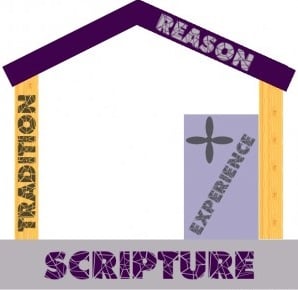The resurrection. Because Jesus was raised from the dead, everything not only must change but everything did change because it morphed, beginning with the meaning of injustice itself.
Their injustice morphs into our injustice
I remember my first sin. I was four. Theologians steeped in Romans 5 and St. Augustine, who had a real knack at focusing on human sinfulness, will argue with me and say that I began sinning much earlier and that we are born sinners. So maybe it wasn’t my first sin, but it’s the first one I remember. We lived in a small village in the heart of America called Roodhouse Illinois. My father was the high school’s track and field coach and every afternoon my mother let me walk from home across the village and across a highway of some sort to the high school’s track field where I got to hang out with my father and the members of the track team. 3pm or so was the highlight of my day so I was already pestering my mom by 1pm or so and asking if it was time to go. Eventually, though, I developed some kind of sixth sense that told me what time it was and I didn’t even have to pester my mom or ask if I could now go to the high school.
One day she told me that track practice would not be held that day and that when the sixth sense told me it was time to head on over to the track field I was to stay home. She told me to listen to The Little Voice inside you and that Little Voice now inside me was my mother’s own words that I should stay home. Around 3pm the sixth sense fired up its memories and then The Little Voice inside me chatted some with the sixth sense, but not enough and the sixth sense got a little louder and The Little Voice inside me settled back into its quiet corner and off I went to the high school. It was loads of fun to have the track all to myself. Fun, that is, until my mother drove up about 5pm in my parents’ Nash and fetched me. She dusted me off in a huff, opened the door, and lifted me into the back seat. With words that are etched deeper in my memory than the Ten Commandments, she said one thing and then asked one question.
“I told you to listen to The Little Voice inside you. Did you listen to the Little Voice inside you?”
“Yes, I did listen.”
“Well,” my mom said, “What did The Little Voice say?”
“It said I could go!”
That was my first sin. I knew The Little Voice said “Scot, don’t go!” and I went anyway. I knew it was wrong; I can remember this sin to this day. I knew it was wr
ong and I did it anyway. It was an injustice before God, I was unjust before my mother and family, and it was an act of violence against what God had made me to do. This is how all sin takes place. We see the options, we ponder the options, we choose our option. Some ponderings are more difficult and some are quite easy. This is where morphing enters the story: the earliest Christians did not simply blame the leaders in Jerusalem. They saw in the injustice of Jesus’ death the paradigm for their sins too.
One
of the least popular words today is “sinner.” But I believe it’s a
good old-fashioned word that doesn’t mess around like the word
“misguided” or “victim.” The word “sinner” stands
up, points its long finger at each of us, says what it needs to say, and sits
back down. Once it does its dirty work of labeling us, we make another choice
by answering this question: “Will I own up to my complicity and my
injustice and my sins?” Or, “Will I call myself a sinner and really
believe it?”
The
cross reveals injustice. An innocent man, a truly beautiful man who was the
Benefactor for many, a man who spun glorious stories of God’s kingdom, a man
who showed compassion on the marginalized, a man who committed himself to his
disciples with unwavering wisdom, and a man who knew so deeply he was a source
of constant reverence. That is the man who was crucified. It was unjust. You
can’t look at the cross and not see the word injustice.
One
question remains: Will we look at the cross long enough to see our own
complicity? Will we see in the sins of the leaders the sorts of things we do?
Jesus’ death reveals in a gruesomely public manner how injustice gets all riled
up and lathers its loathing self-promotion on others by doing them in. His
death, in other words, unmasks the web of injustice that humans, each of us, has chosen to create.
That Galilean man of love and justice and peace and compassion, who had the
prophetic courage to stand up and summon people to live out his kingdom dream
by entering into the GodLife, ended up on a cross on Golgotha because the web
of injustice did him in.
We
spin that web daily. We spun the web that did Jesus in.
We
are responsible. That’s what the word “sinner” means.
We
are sinners.


